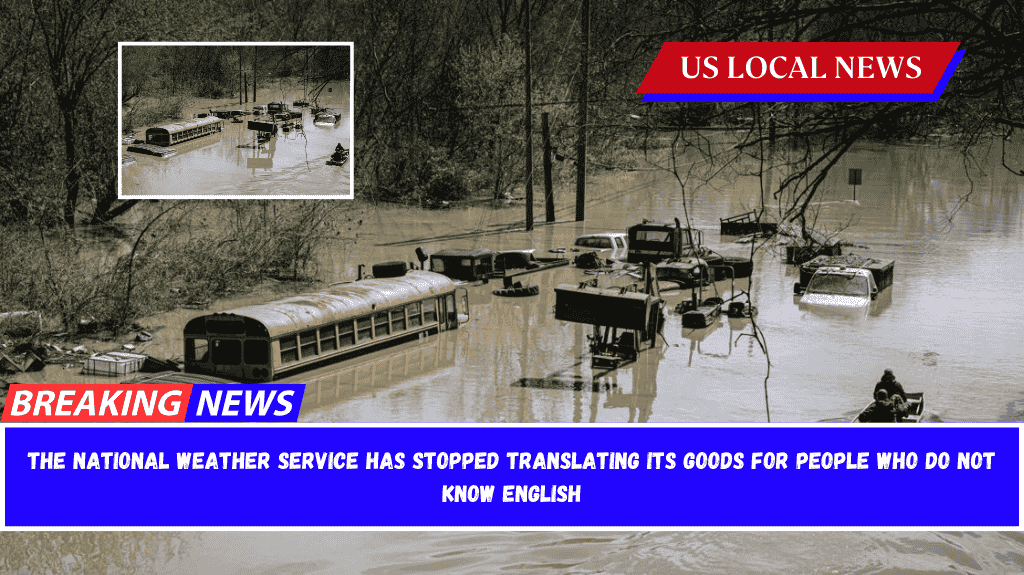The National Weather Service is no longer providing language translations for its products, which experts say puts non-English speakers at risk of missing potentially life-saving extreme weather warnings.
The weather service has “paused” the translations because its contract with the provider expired, according to NWS spokesman Michael Musher. He declined further comment.
Lilt, an artificial intelligence company, began providing translations in late 2023, replacing manual translations, which the weather service had previously stated were labor-intensive and unsustainable. It eventually made them available in Spanish, Chinese, Vietnamese, French, and Samoan. The contract lapse comes as President Donald Trump’s administration seeks to reduce federal agency spending, including cuts to the National Oceanic and Atmospheric Administration, which has resulted in high employee vacancy rates at NWS offices.
NOAA referred questions about the contract to a message on its website announcing that it had expired. Lilt did not return requests for comment.
According to 2019 Census data, nearly 68 million Americans speak a language other than English at home, 42 million of whom speak Spanish.
Not being able to read urgent weather alerts could mean the difference between life and death, according to Joseph Trujillo-Falcón, a University of Illinois Urbana-Champaign researcher who has collaborated with NOAA on how to translate weather and climate information to the public, including the use of artificial intelligence.
He stated that translated weather alerts saved lives during a deadly tornado outbreak in Kentucky in 2021. A Spanish-speaking family interviewed afterward stated that they received an English-language tornado alert on their cellphone but ignored it because they did not understand it. When the same alert was issued in Spanish, they immediately sought refuge, he said.
“It saved their life,” Trujillo-Falcón explained.
Trujillo-Falcón stated that forecasters who spoke more than one language used to translate weather alerts, which could be “completely overwhelming” in addition to their forecasting duties.
According to Andrew Kruczkiewicz, a senior researcher at Columbia University’s Climate School, the translations are important for more than just extreme weather events. General weather forecasting is critical for a variety of industries, including tourism, transportation, and energy. Families and businesses can make more informed decisions when they have access to weather information, which often includes actions that should be taken in response to the forecast.
Norma Mendoza-Denton, an anthropology professor at the University of California, Los Angeles, stated that many people in the United States function with limited English in their daily lives. A shopkeeper, for example, may be able to engage in brief conversations with customers but may not understand weather or climate terminology.
“If they don’t have access to that National Weather Service information in the different languages, that could be the difference between life and death for somebody,” Mendoza-Denton told the crowd.
Multiple private foundations provide financial support for the Associated Press’ climate and environmental coverage. The AP is solely responsible for all content. At AP.org, you can find the organization’s standards for working with philanthropies, as well as a list of supporters and funded coverage areas.


















Leave a Reply